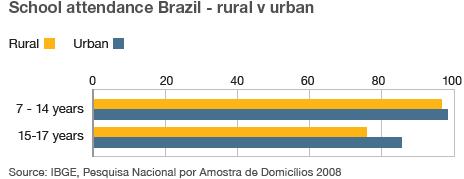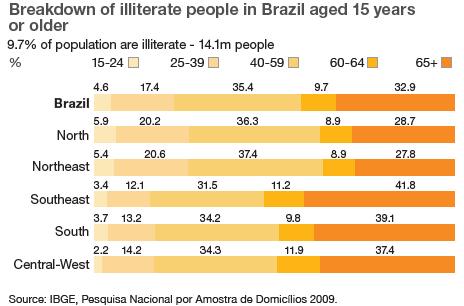Brazilian elections: Education
- Published
Education has been among the key issues in the campaign ahead of Brazil's elections on 3 October.
Education is compulsory for children aged seven to 14.
Recent government programmes have managed to achieve near 100% attendance in basic education.
There is less of a difference between urban and rural attendance trhan there once was. Pupils living in rural areas often missed school to help their families at seeding or harvest time. But there is more leeway in the timetable to allow them to also attend classes.

However, the quality of schooling in Brazil has been brought into question.
The OECD's Programme for International Student Assessment (PISA) surveys 15-year-olds across the world to see how much knowledge and skills essential for full participation in society they have acquired.
They also ask students how important different subjects are and whether they have access to the internet or a computer at home.
In the 2006 study, Brazil had some of the lowest scores for sciences, ranked with Indonesia and Tunisia. Among Latin American countries, Brazil was at a similar level to Argentina and Colombia. Chile, Uruguay and Mexico did much better - but all were below the average for the OECD richest developed countries.
Brazilian workers have an average of seven years of basic schooling compared with 11 in South Korea, 12 years in the US and up to 13 years in parts of Europe.
Brazil has made some gains in the fight against iliteracy, the figure for people aged 15 or over falling below 10% for the first time in 2009 - reaching 9.7% or 14.1m people.
Out of these the highest proprtion are the older generation, although there a large proportion of those who cannot read or write are aged between 40 and 59.
